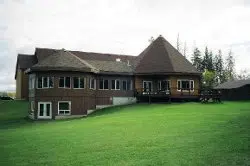
Addictions help comes to those on distant First Nations
Help will soon be close to home for people working to end their addictions on Ahtahkakoop First Nation, northwest of Prince Albert.
Prince Albert’s Methadone Assisted Recovery Program is linking with Cree Nation Treatment Haven, on the reserve, to offer both the medication and counselling, beginning Dec. 1.
“The special thing is that it’s on the same site, with the same people involved,” said Dr. Leo Lanoie, an addictions specialist and head of the methadone program.
“What happens here in Prince Albert is we have very good relationships with a number of treatment centres and our addictions program. The big problem is we work in different buildings and there is a time and distance gap between when we send people for (counselling) and when they get there.”


